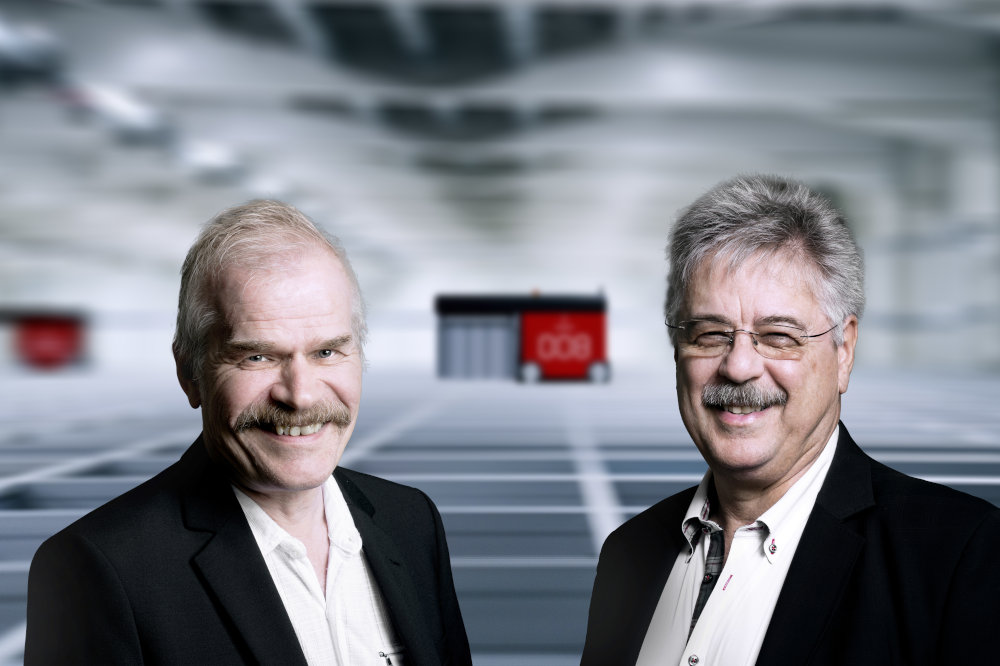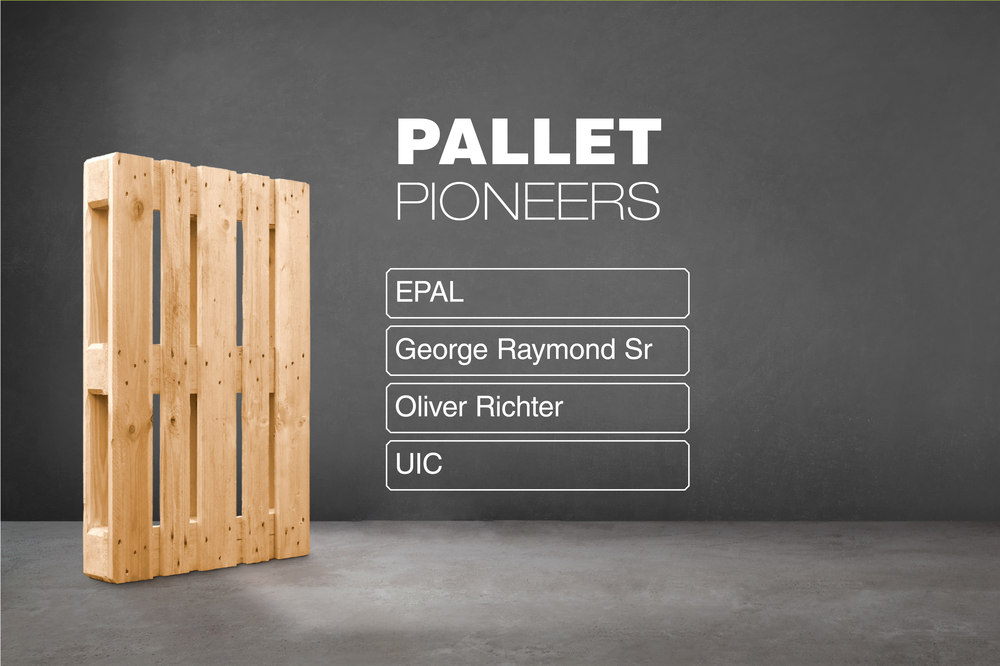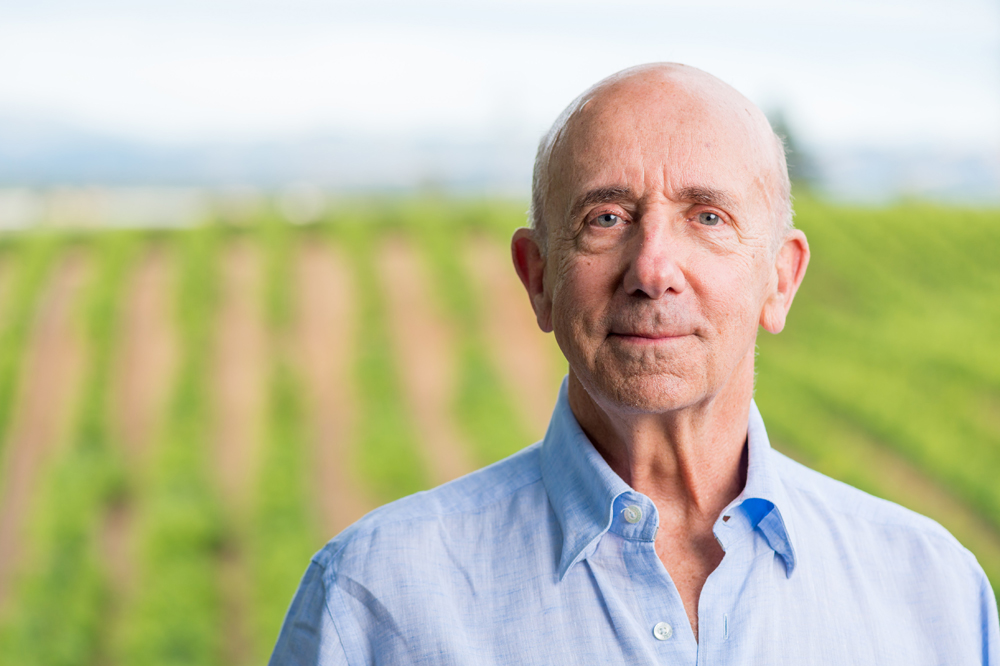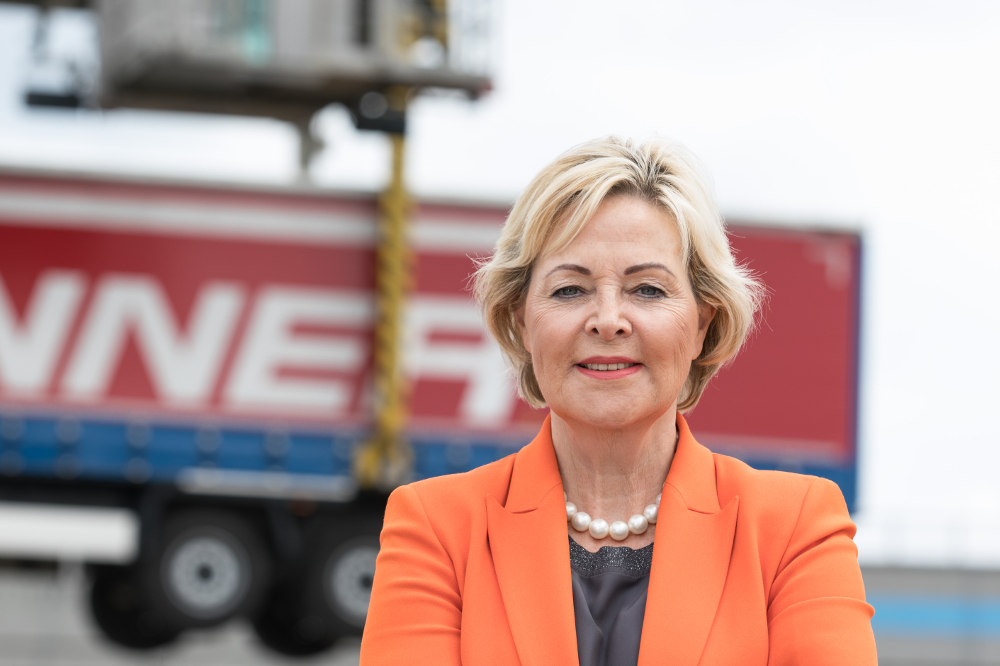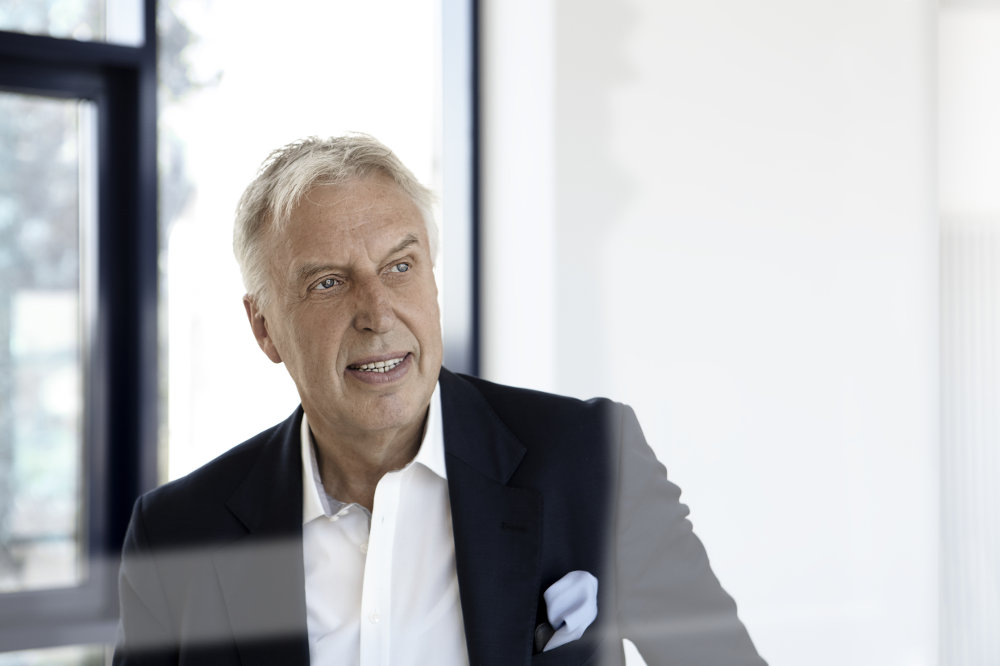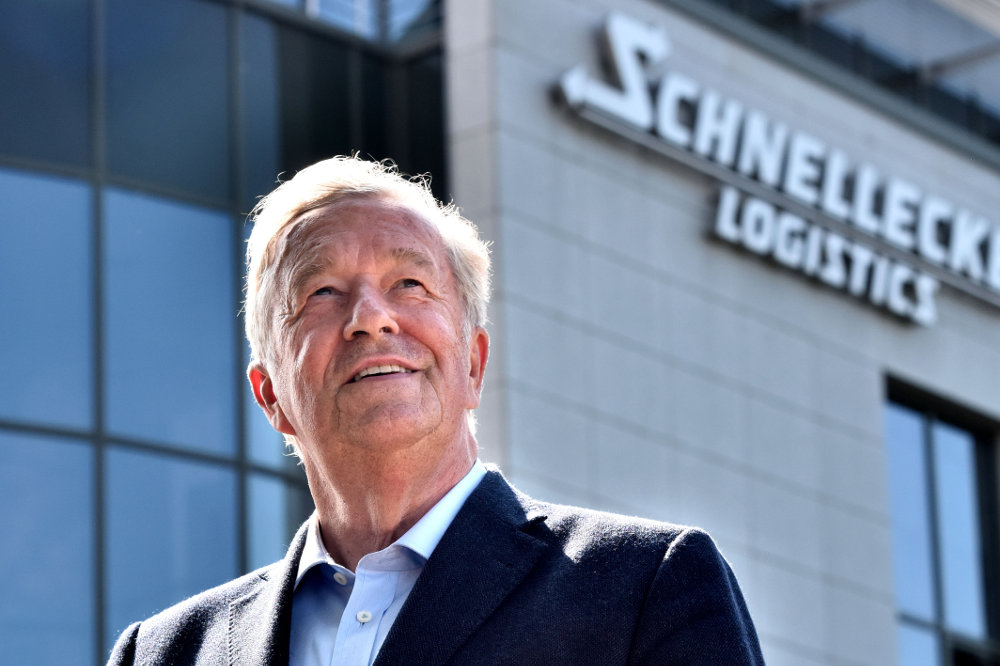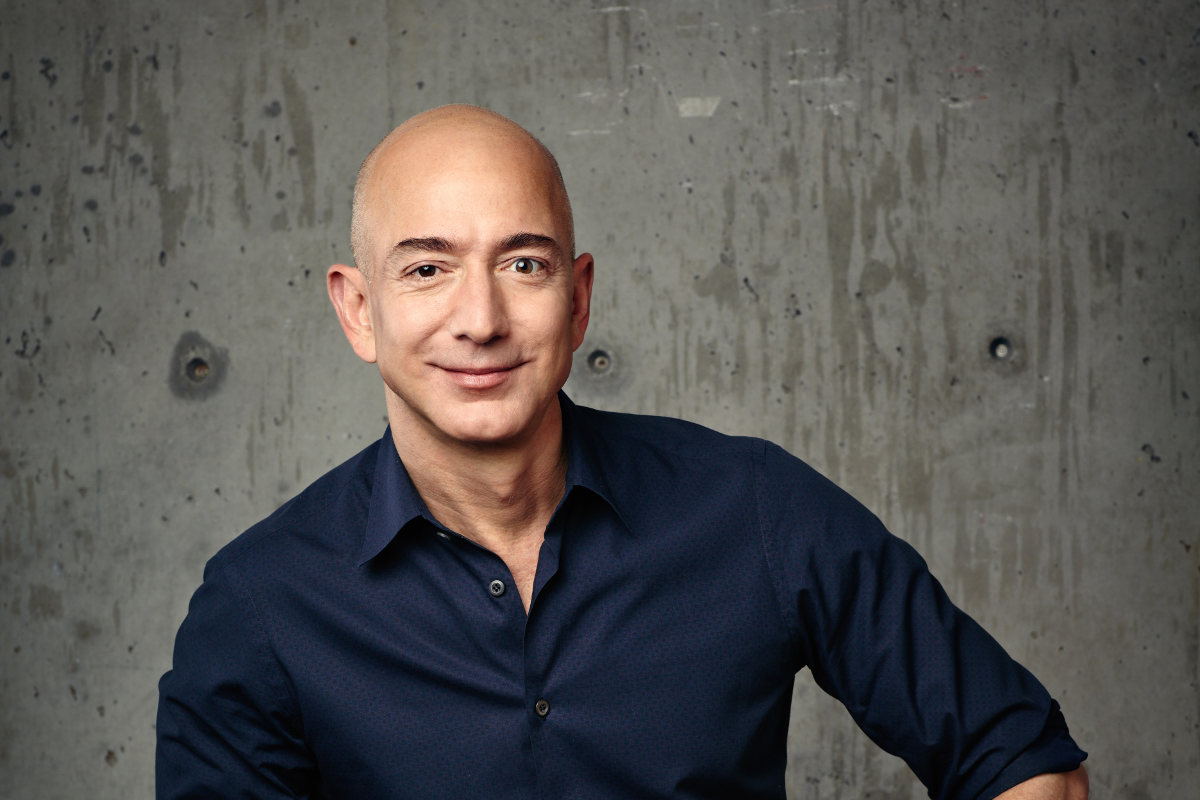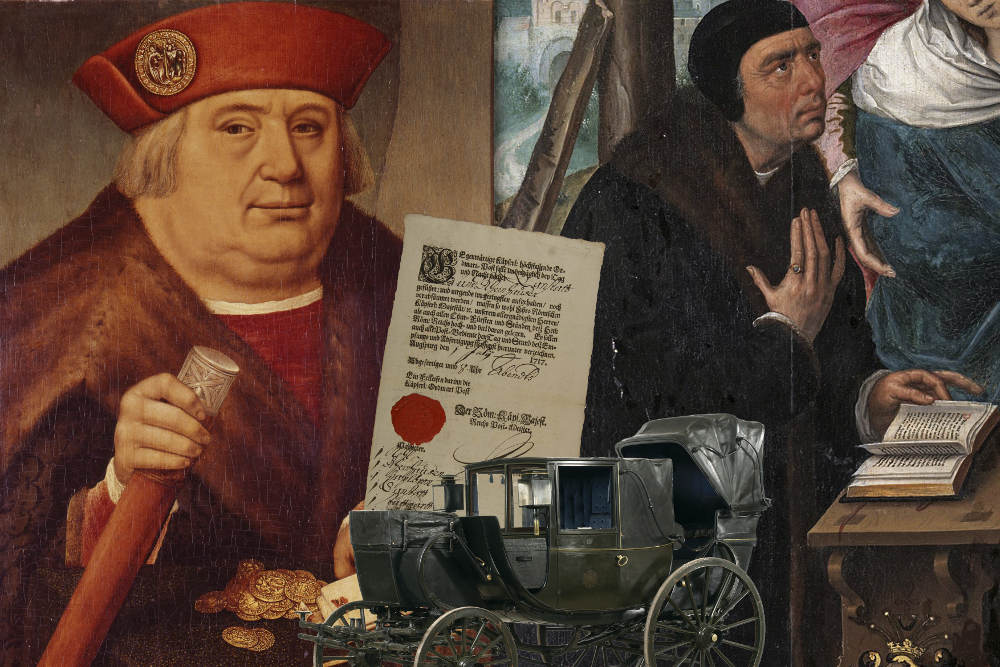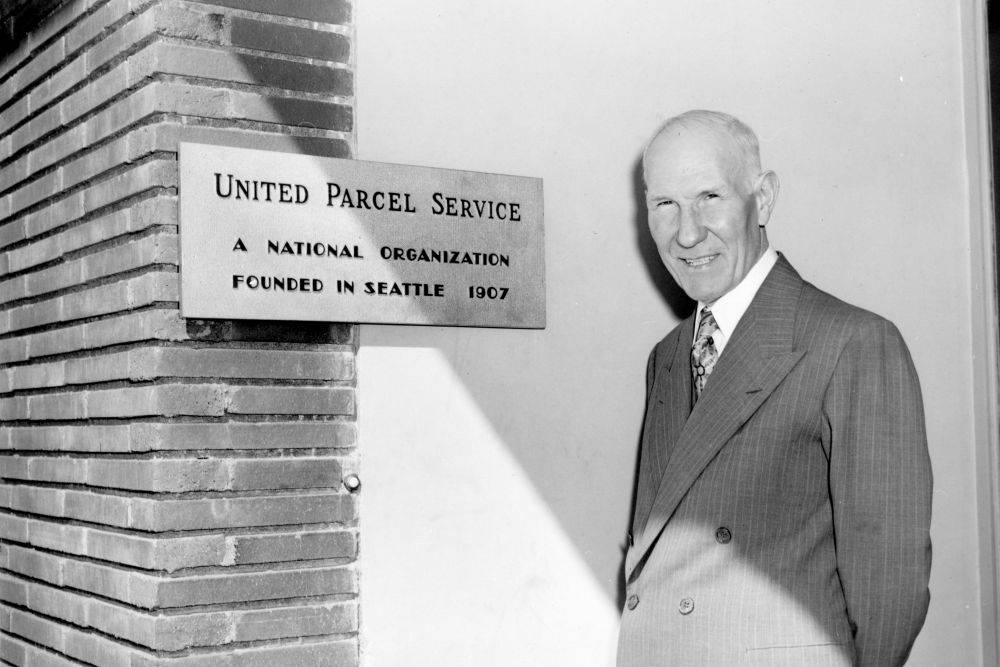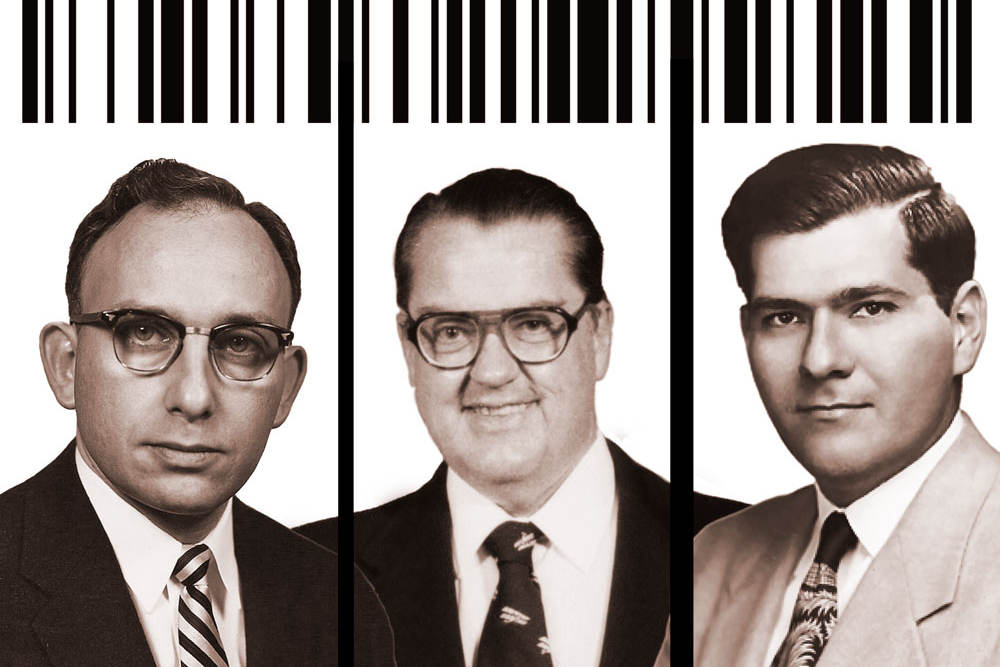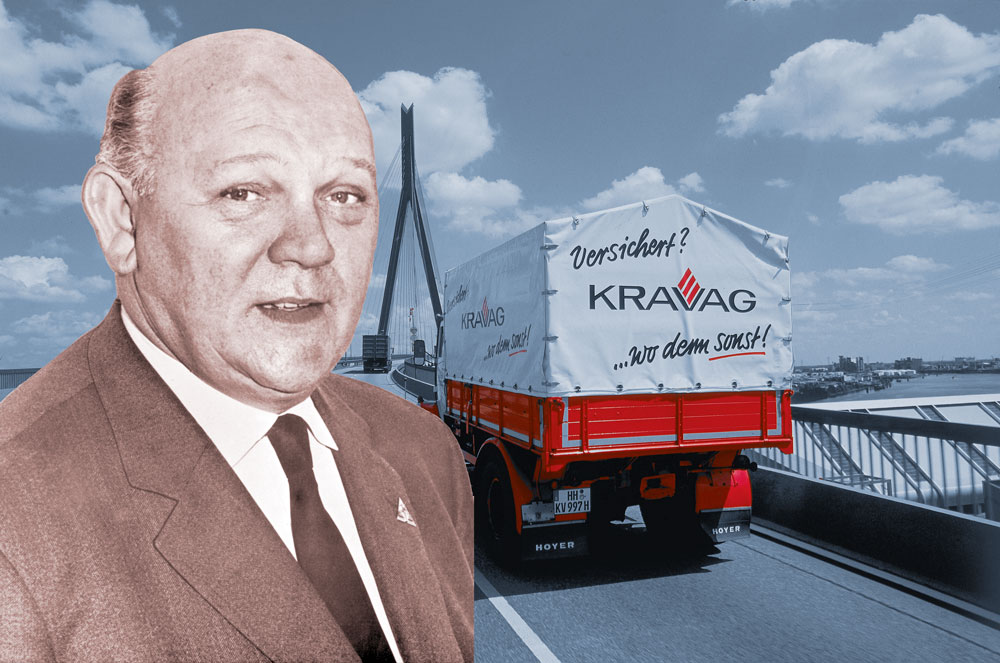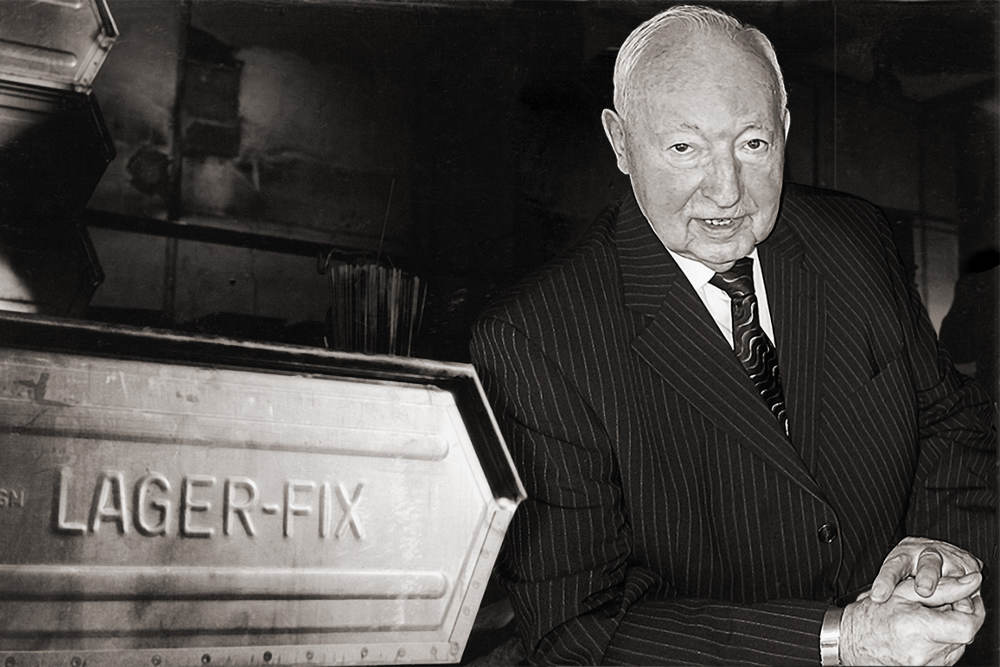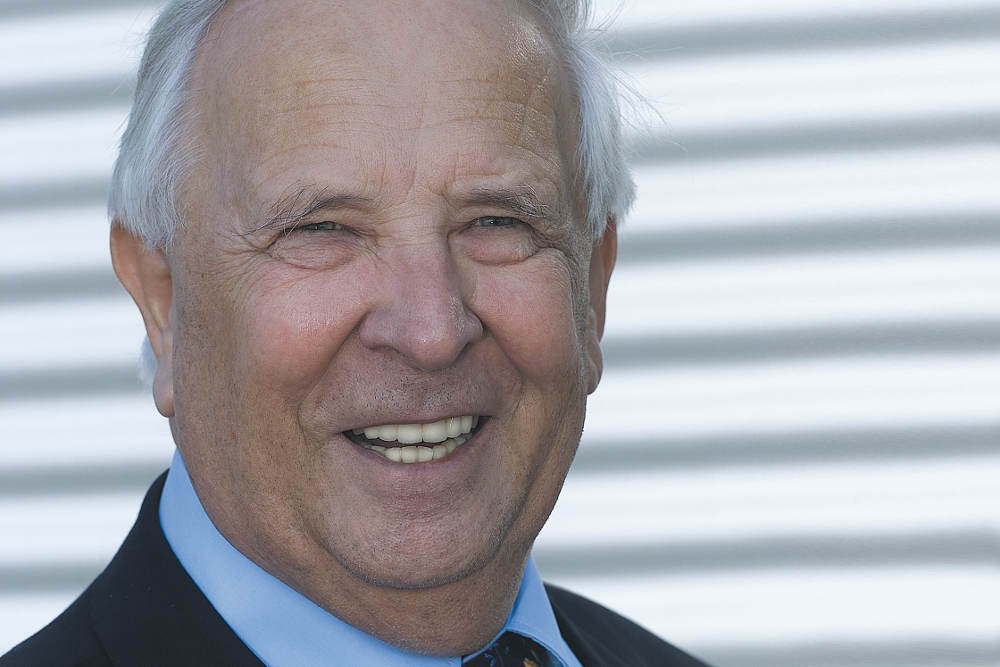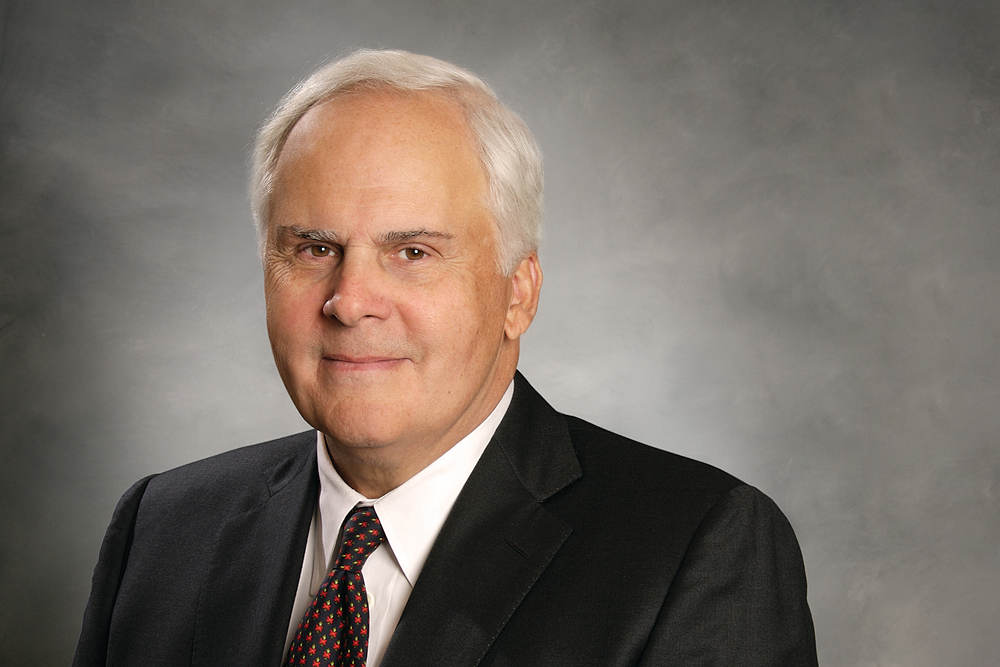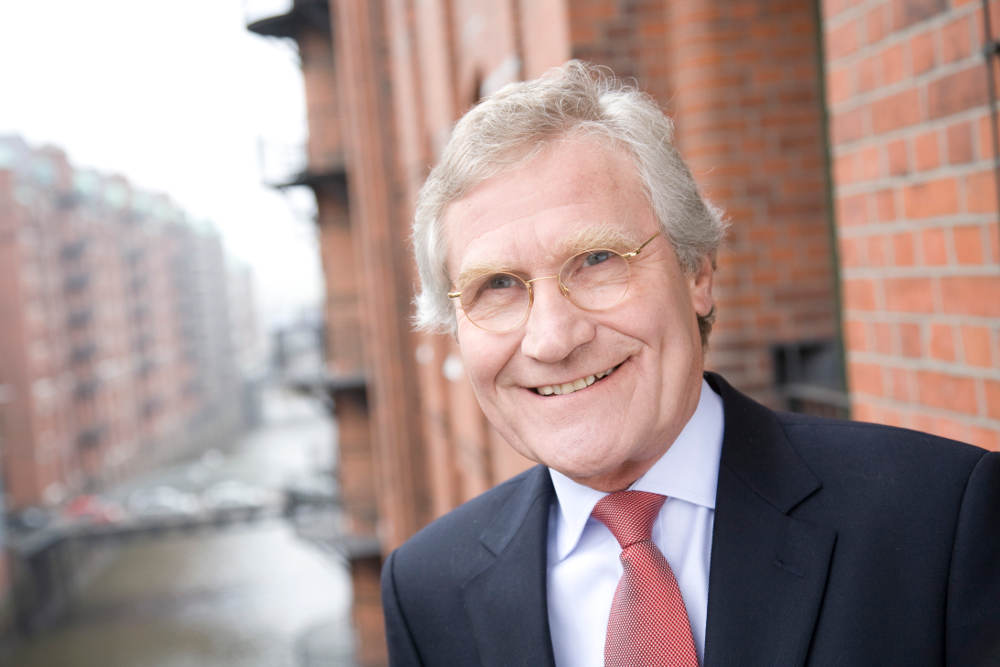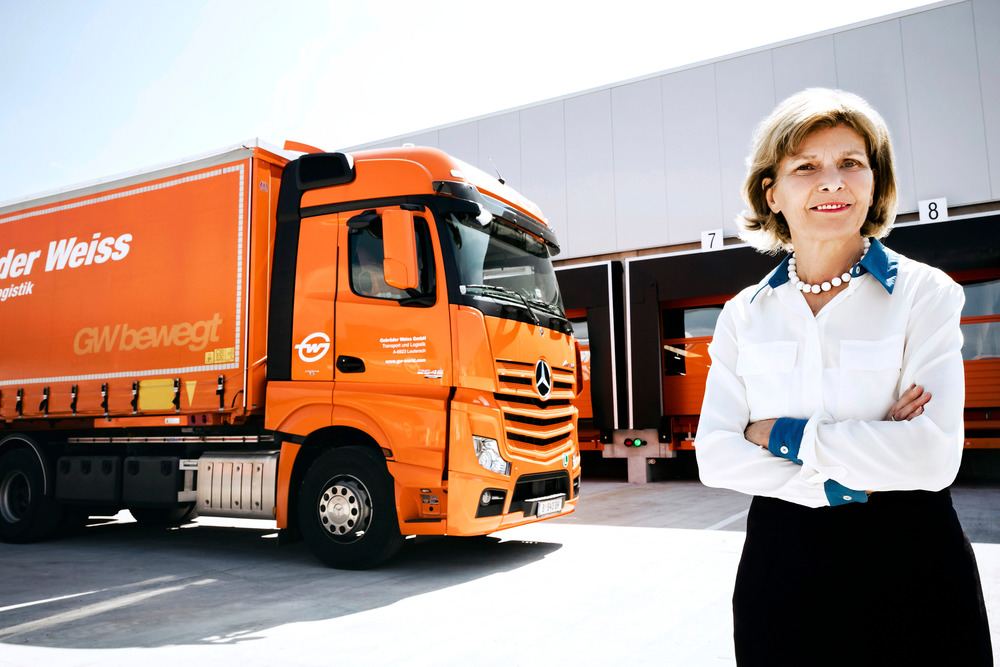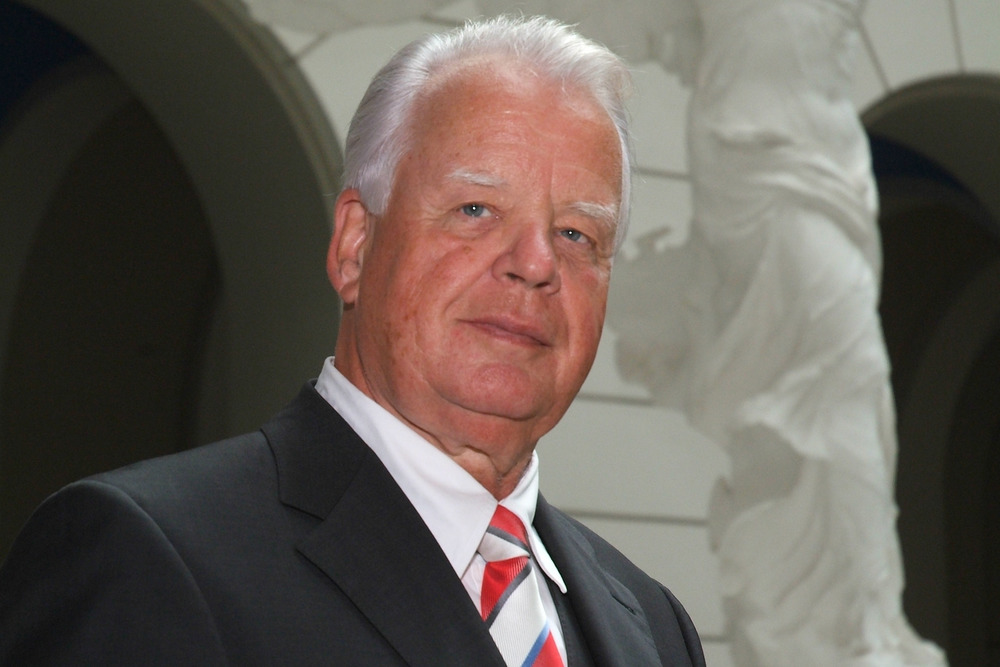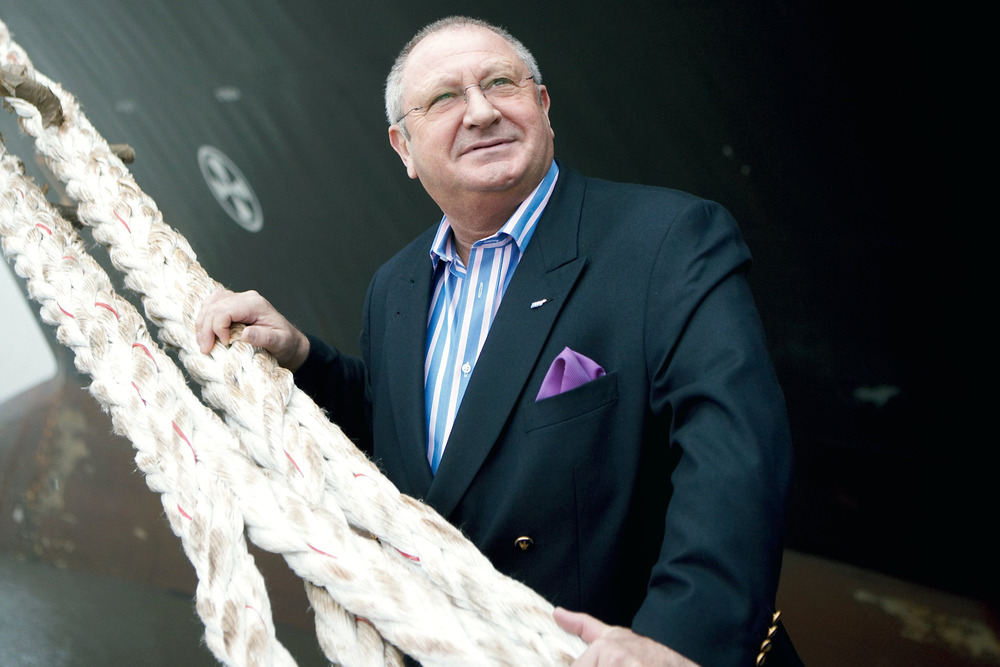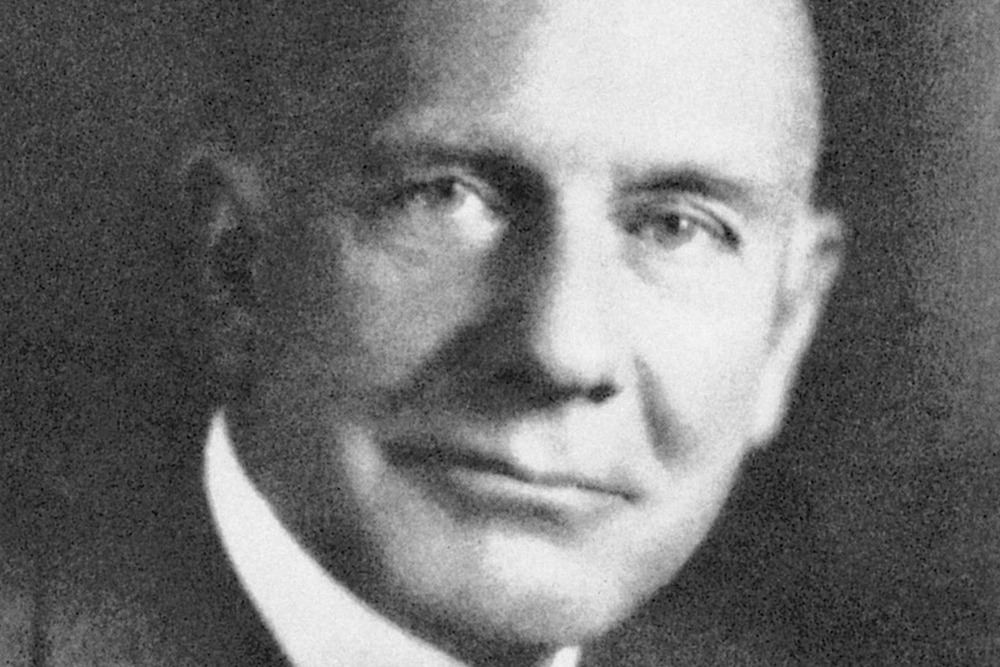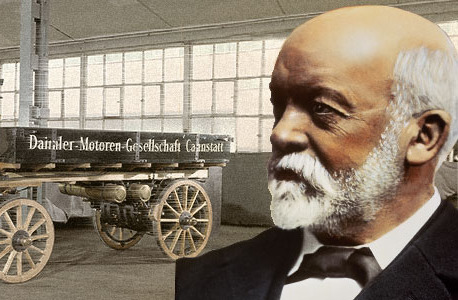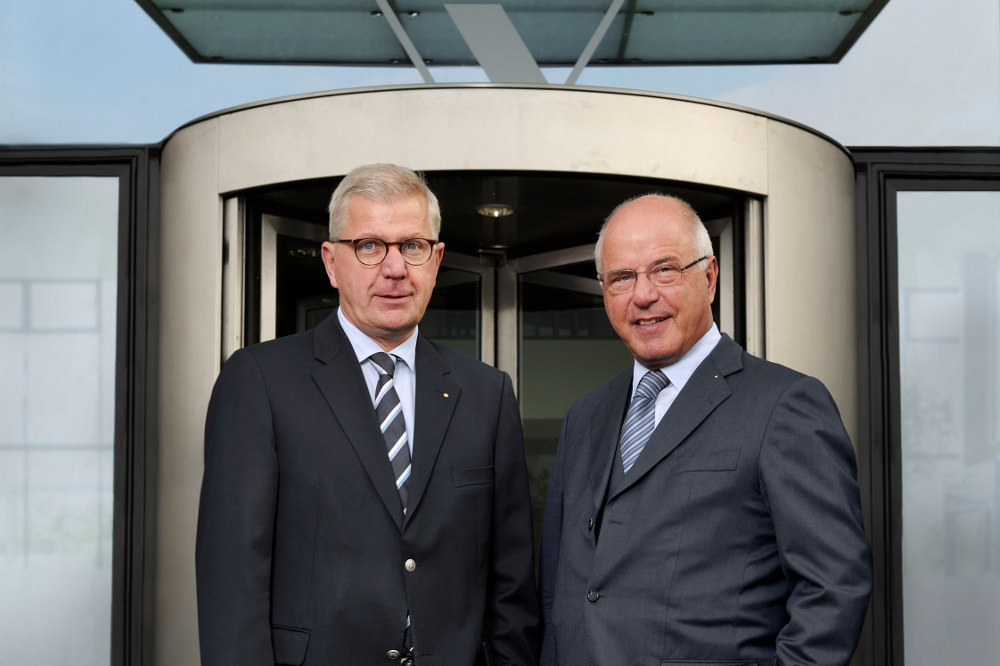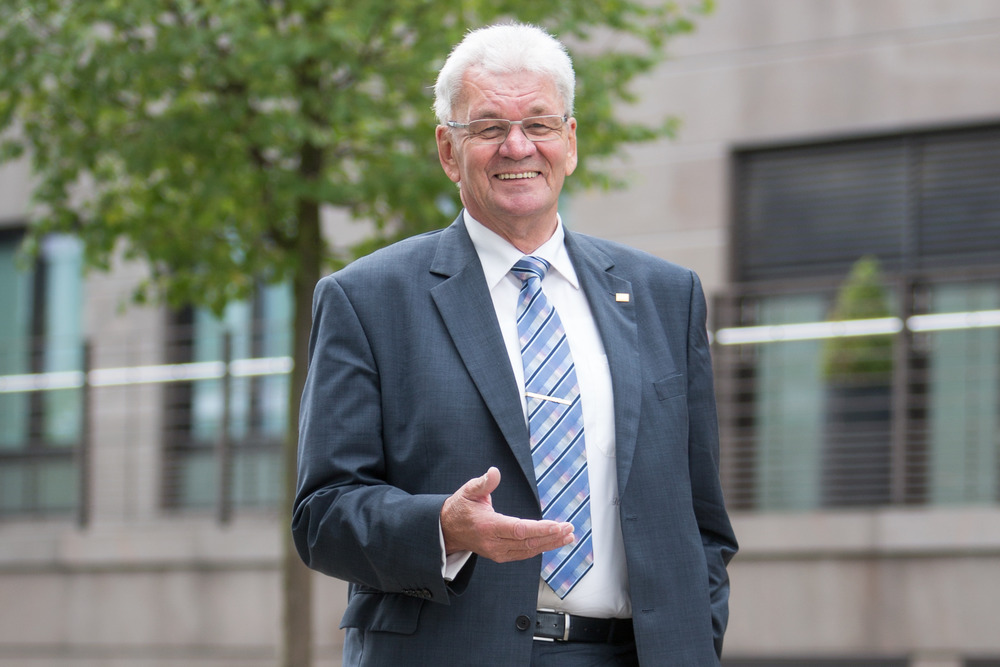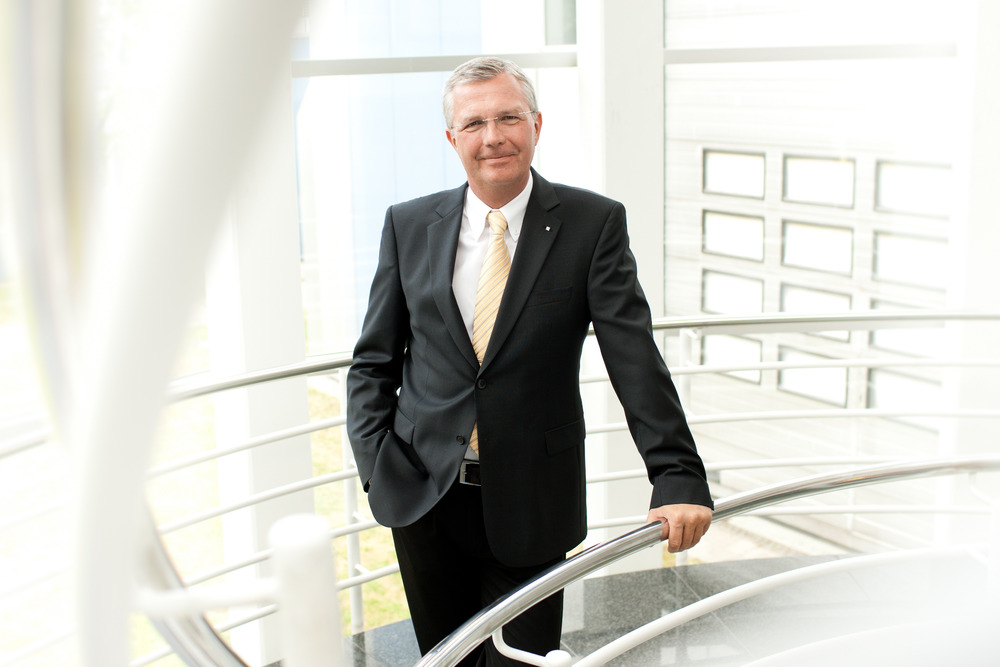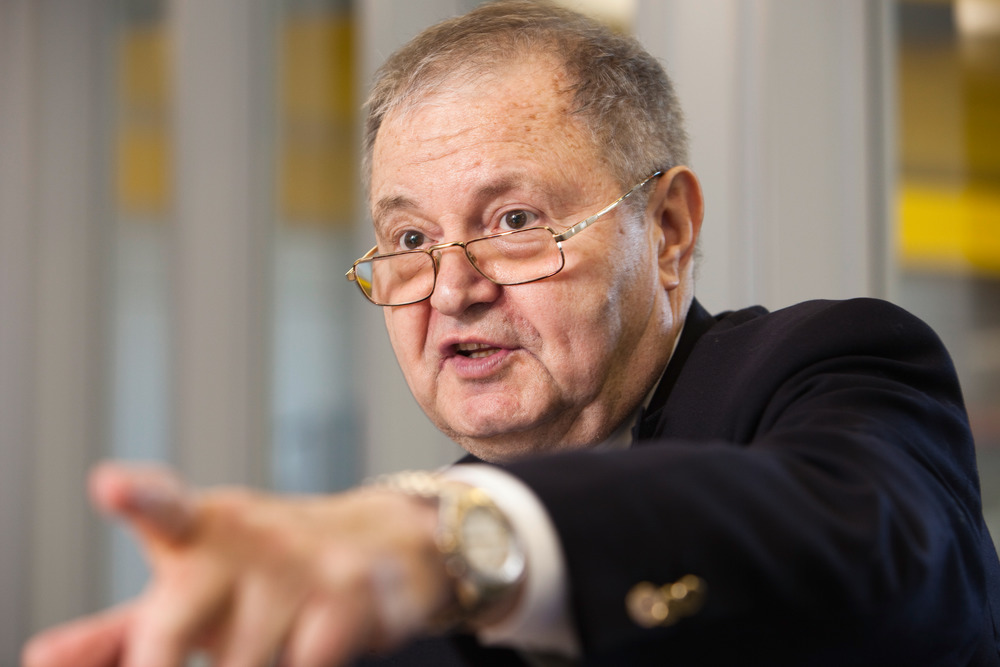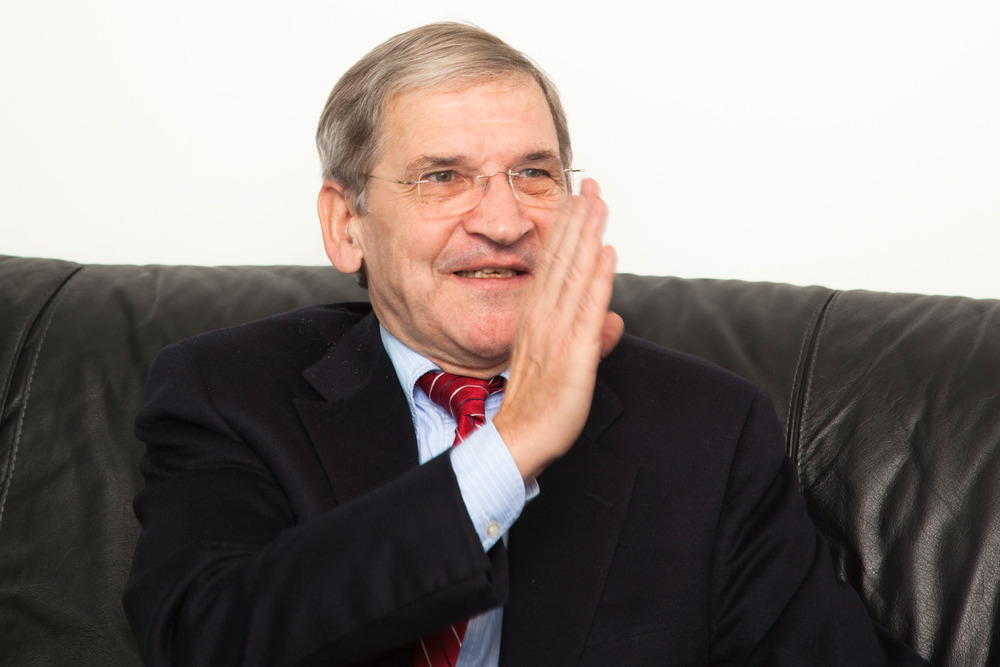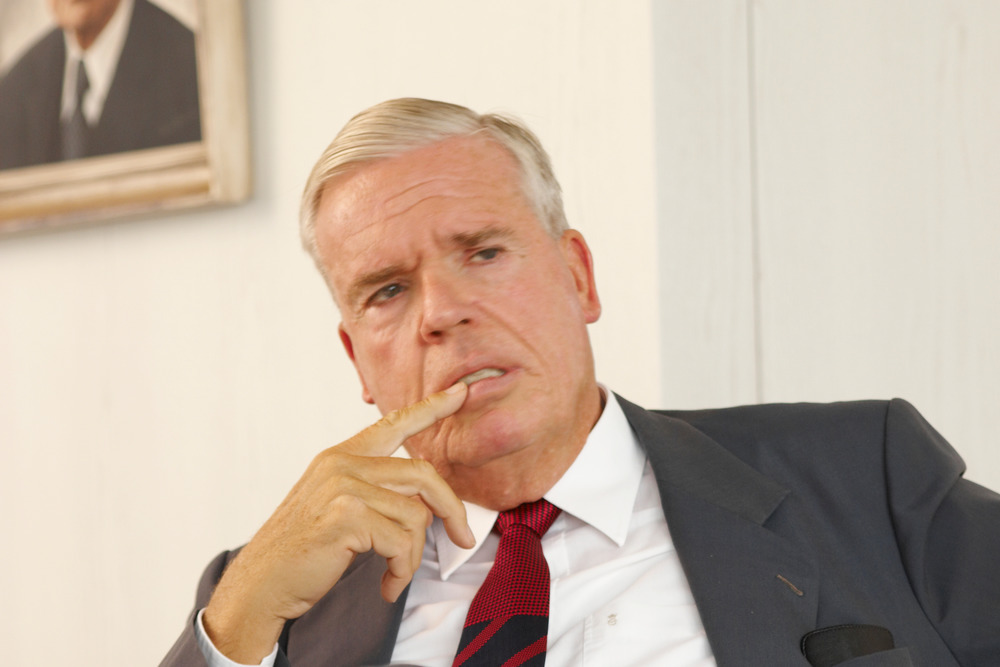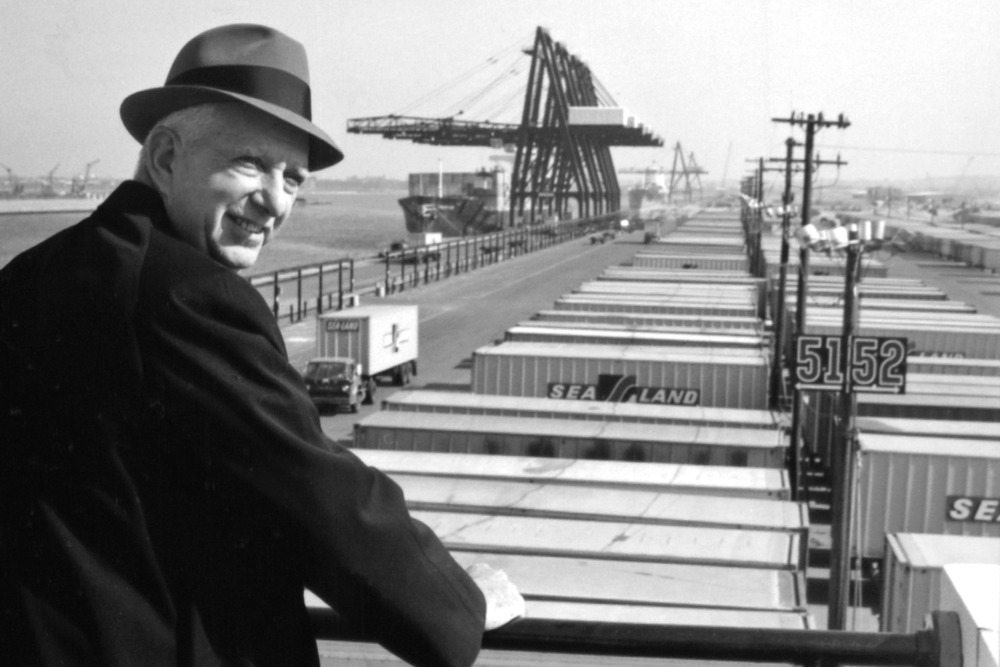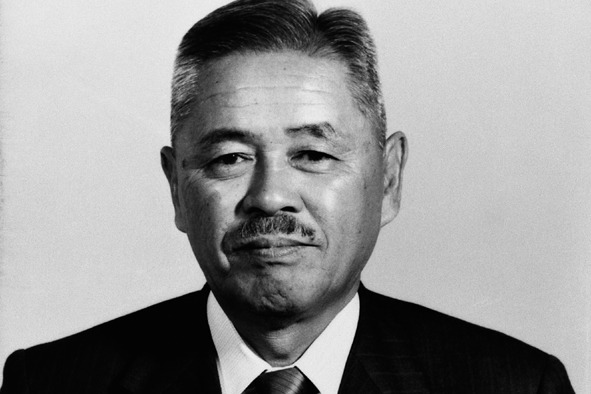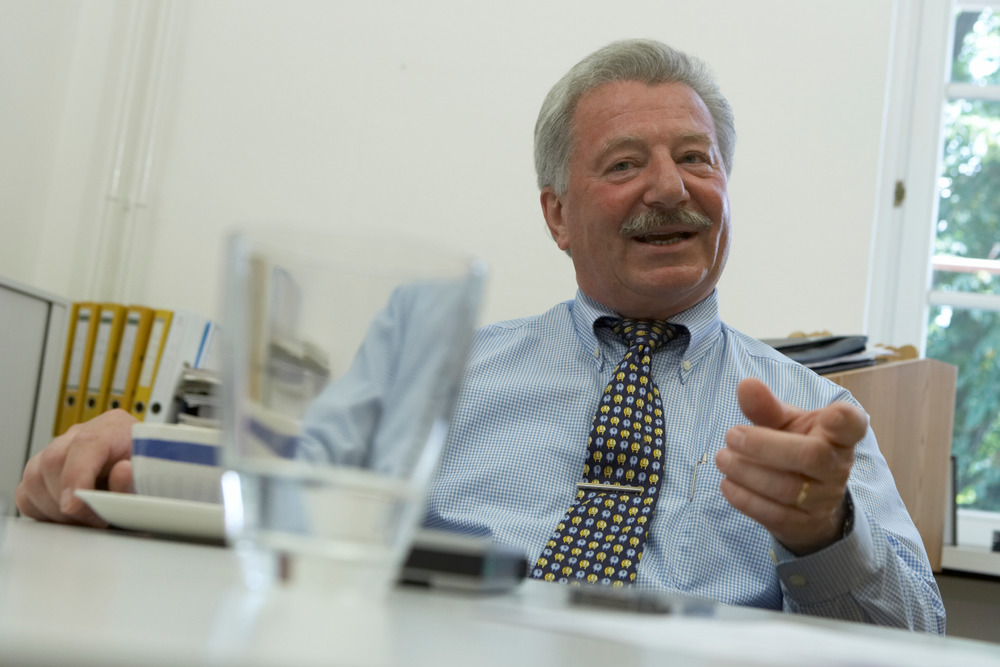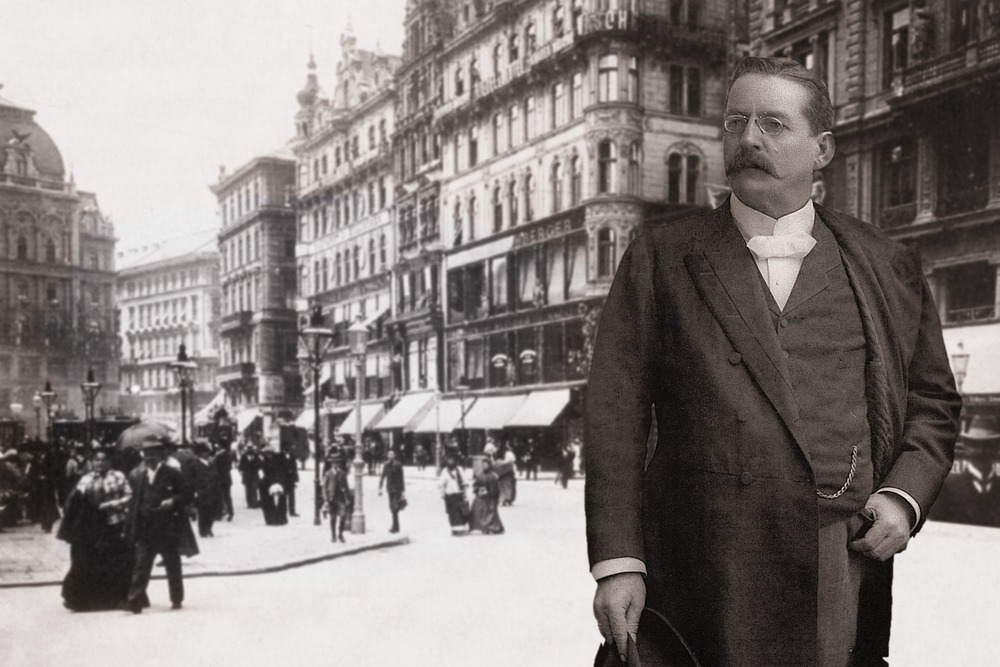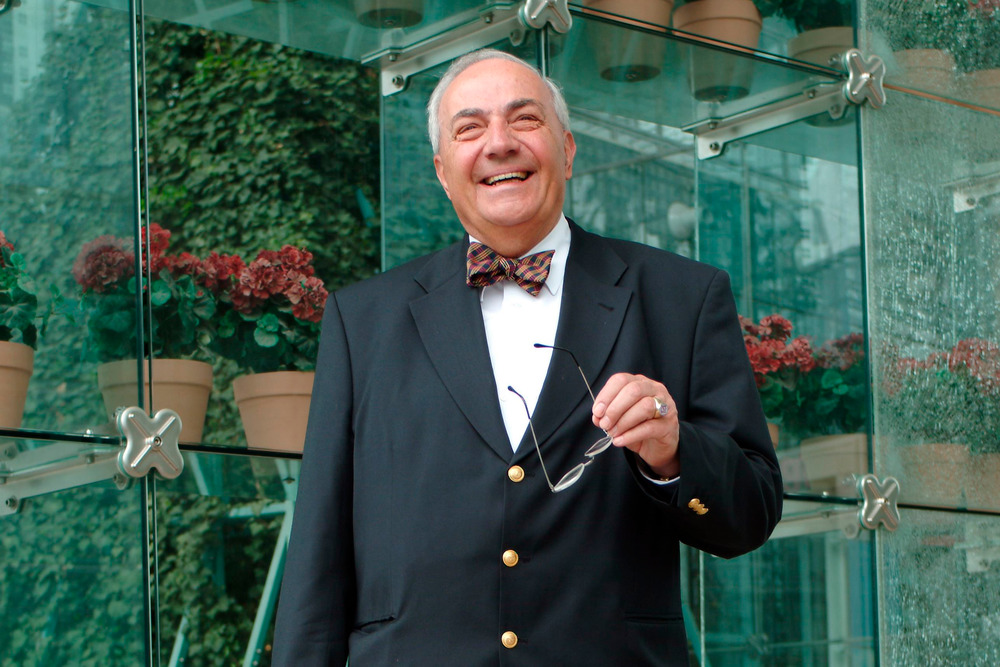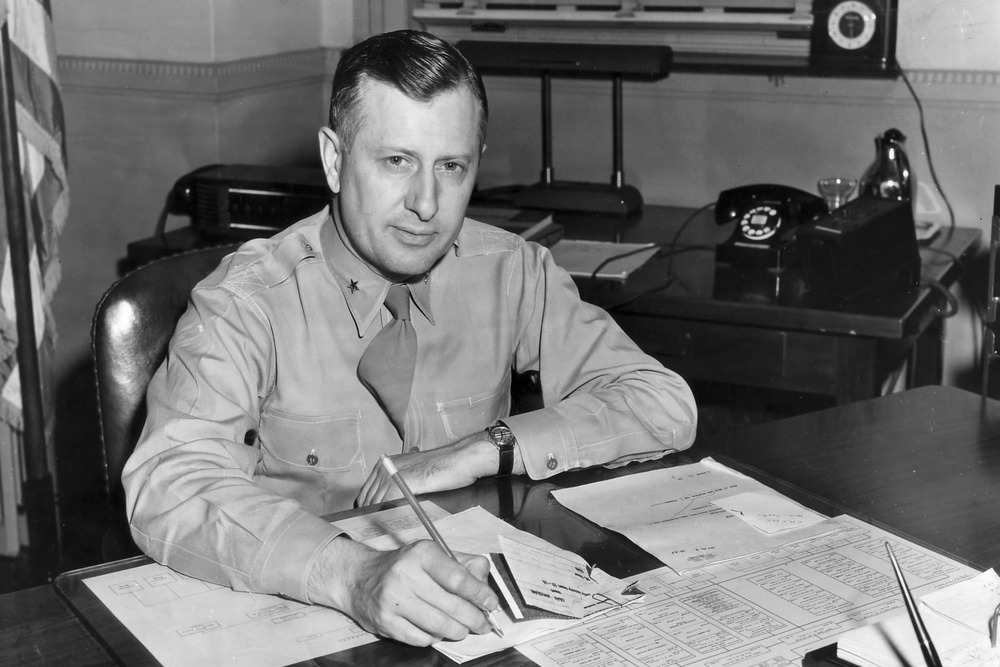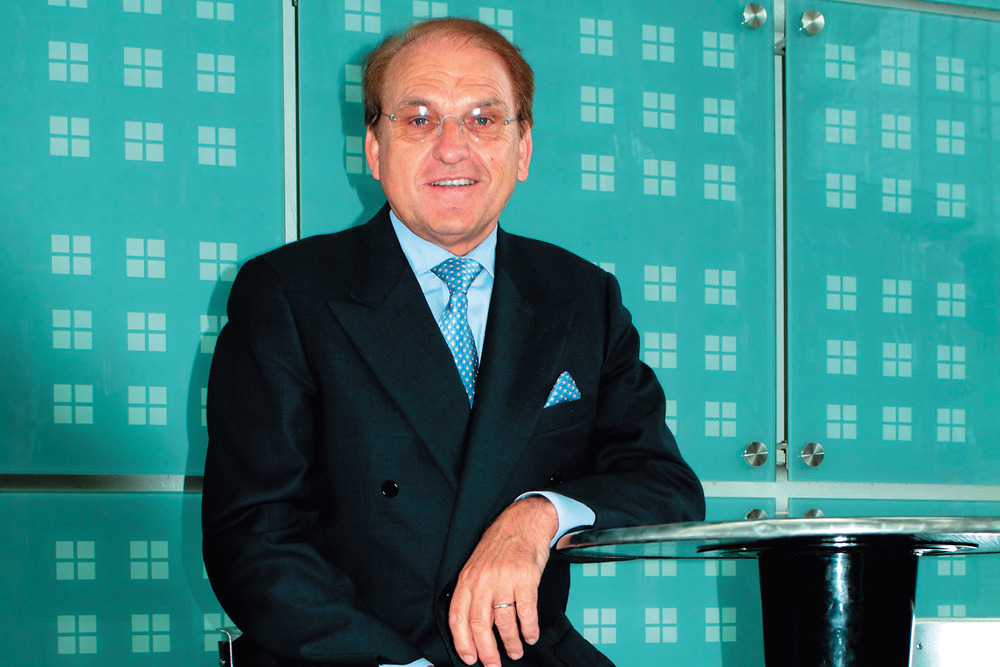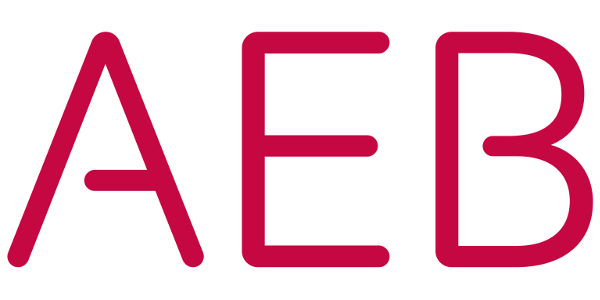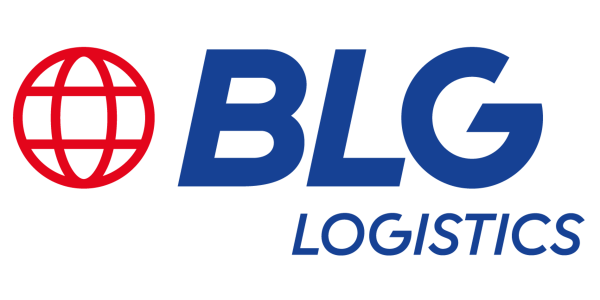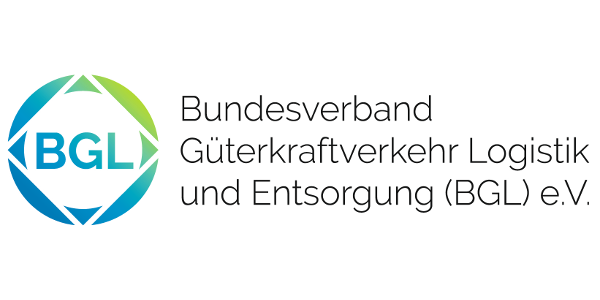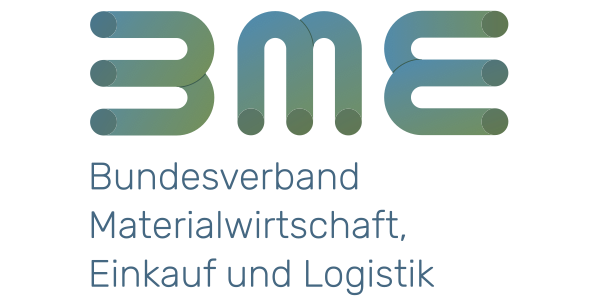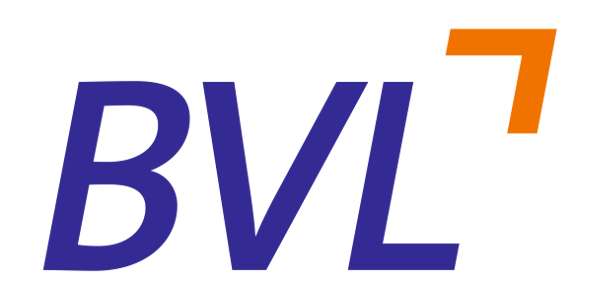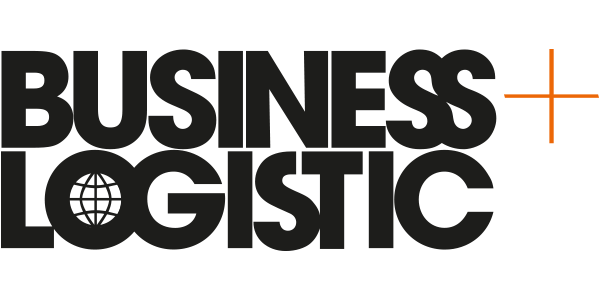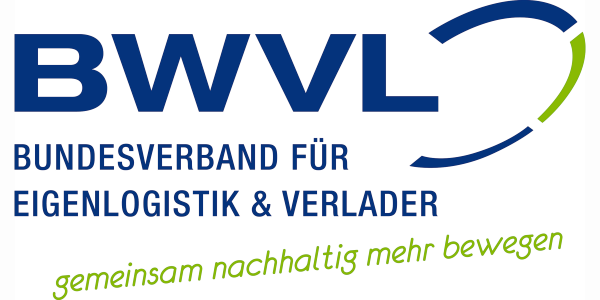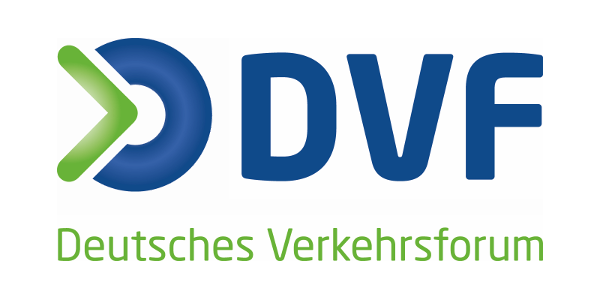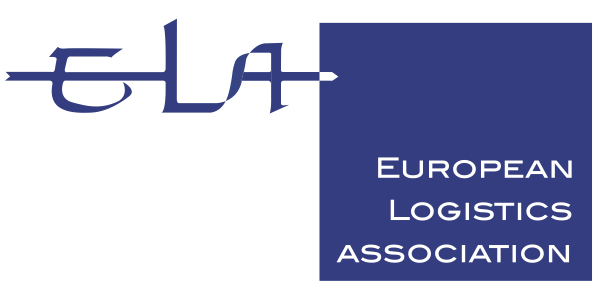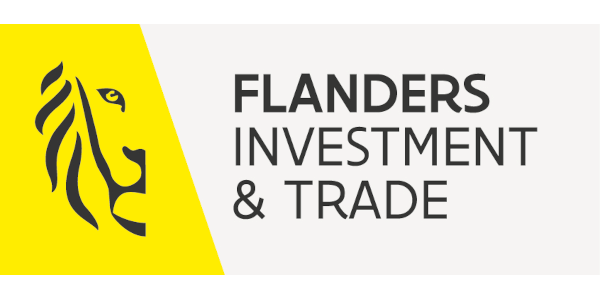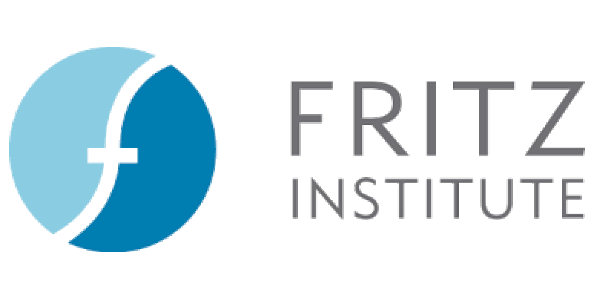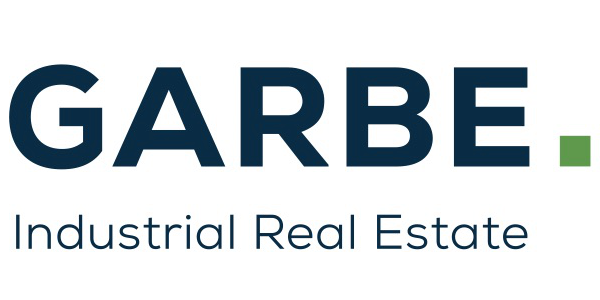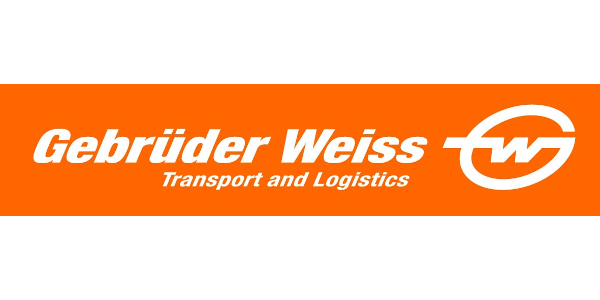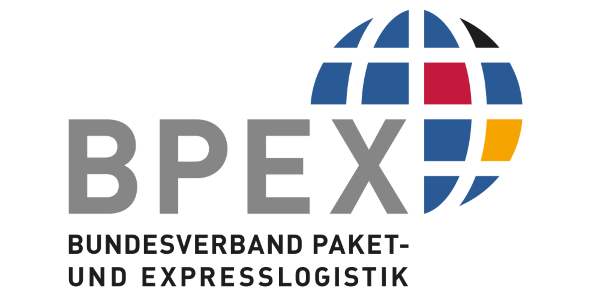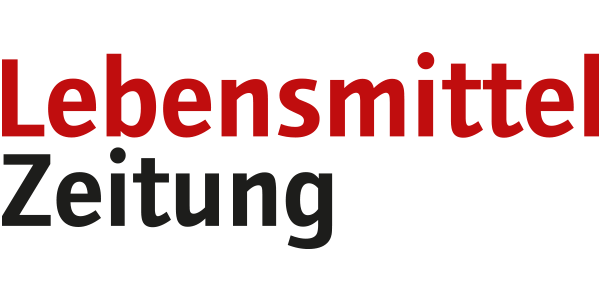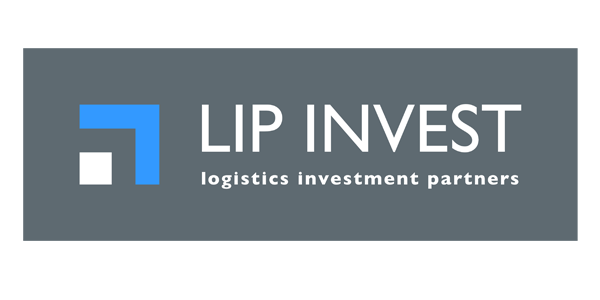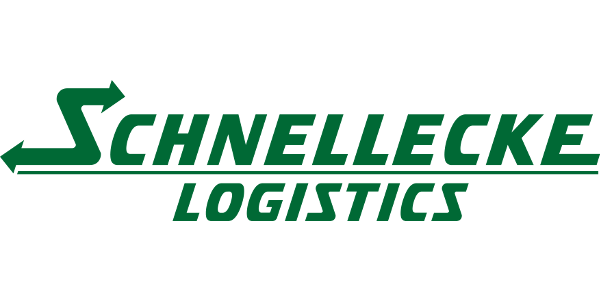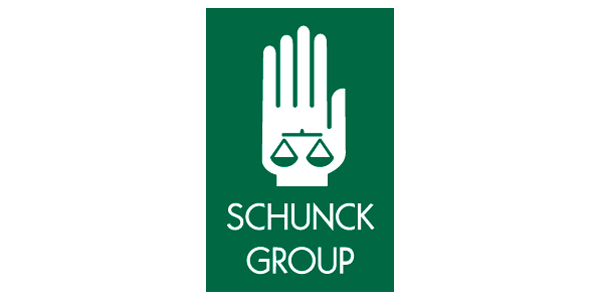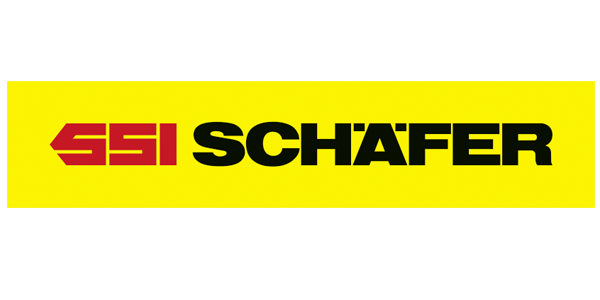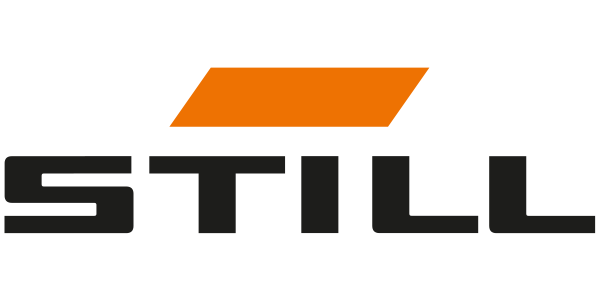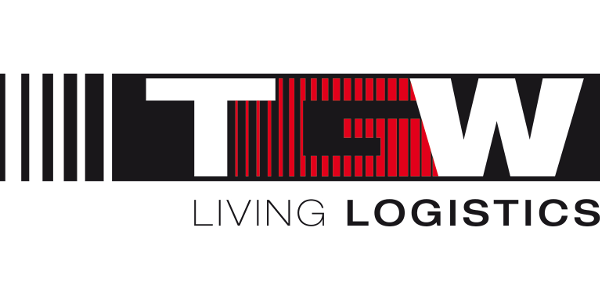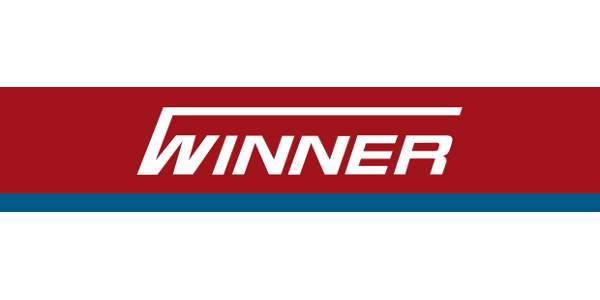Ewald Raben
Ewald Raben has successfully driven the expansion of the Raben Group through his entrepreneurial skills and stringent strategic decisions. His focus on growth, modernization, digitalization and sustainability has significantly increased sales in 2023 and made the company a major player and role model in logistics. The investments are designed to last for generations and include not only acquisitions, but also investments in terminals, processes and digitalization.
The current highlight is the restructuring of the Europe-wide general cargo network. This marks the successful completion of one of the company's central projects. The transports are now managed via six interconnected Euro hubs.
| Sector | Transport, logistics, contract logistics |
| Country | Poland |
| Current position | Managing Director Raben Group |
Ewald Raben recognized the growth opportunities in the Eastern European market after the fall of communism in 1989. At the age of 22, he set off for Wisła and opened the family company's first branch in Poland in 1991 - this was followed by others and Raben developed a plan: according to legend, he bought a Polish map in 1989 on which he wanted to open 12 points for future branches of the family company. The plan reached its temporary climax this year. Ewald Raben restructured the now Europe-wide general cargo network, successfully completing the company's central project.
The transports are now managed via six interconnected Euro hubs. They are the central anchor points in the Raben network, responsible for the consolidation of groupage freight for European liner services. They will complete the fixed, direct transport routes and ensure strictly timed connections between all of the company's European depots. The advantages of the new structure are a reduction in CO2 emissions, faster transit times to all European delivery destinations within 24 to 96 hours, better capacity utilization and a more flexible response to fluctuating freight volumes.
Raben operates in 15 countries with its own networks, while the remaining countries, mainly in Western Europe, are covered by partners. Thanks to the massive acquisitions of recent years, as well as organic growth, the company generated a record turnover of two billion euros in 2023.
The new status was assigned to the following locations:
- Sarstedt (handling of connections to Scandinavia)
- Mönchengladbach (Northern France, Benelux, the United Kingdom, Ireland)
- Fellbach (Spain, Portugal, the rest of France)
- Aichach (Austria, Italy, Poland, Czech Republic) in Germany
- Legnica in Poland (connection within this market and to the Baltic countries)
- Rokycany in the Czech Republic (South Eastern Europe)
The implementation of the Eurohub concept has strengthened the logistics company's presence in Germany and at the same time underlined the strategic role of this market on Raben's map.
Investments in digitalization, including a pallet management project, are at the top of the agenda for the coming years. The aim is to make processes transparent in order to identify productivity potential in the logistics chain. For example, the "incident management" project aims to optimize shipment delivery. In the event of problems at the unloading point, the driver is no longer connected with the dispatcher at the incoming depot, but with the direct contact to the respective customer advisor at the outgoing warehouse. The latter should contact the client directly in order to clarify discrepancies and expedite unloading.
Another focus is on contract logistics.There are now 1.8 million square meters of logistics facilities in operation across Europe, of which almost 400,000 are in Germany and more are under construction. Many of the facilities are directly docked to the general cargo terminals, such as the one in Ragow near Königs-Wusterhausen in Brandenburg with 28,000 pallet spaces.
Raben is taking a remarkable step in terms of sustainability - partly out of generational thinking, but also for economic reasons. Ewald Raben has made a commitment to the banks to achieve ambitious sustainability figures. The company's interest rate level is directly linked to this.
To counteract the shortage of drivers, Raben has introduced the country principle. Drivers should always work in their home country and be able to spend the weekend at home. He has also launched an initiative to ensure that drivers are not allowed to work under inhumane conditions. They should receive at least the same salary level as industrial workers or even slightly higher because they are not at home all week - even if transport prices come under pressure again.
The beginnings of today's Raben Group date back to 1931, when Jan W. Raben, grandfather of Ewald Raben, started transporting the products of local farmers to market in the small village of Winterswij in the Netherlands. In 1960, the next generation took over and Theo Raben expanded the transportation of textiles to Poland, among other places. His son Ewald Raben took the first step abroad and opened the first branch in Poland.
In 2003, Ewald Raben became CEO of the Raben Group and not only expanded the Raben network to more than 160 locations and 1,800,000 square meters of warehouse space in 15 European countries, but also set up his own transport network in Germany. January 2018 marked the beginning of this process, with the creation of a separate, independent groupage network comprising 32 branches and 46 locations, employing almost 3,000 people and operating a fleet of around 2,000 vehicles. This undertaking was a milestone for the Raben Group. The group employs 12,000 people and operates national and international general cargo transportation, food logistics and contract logistics.
To mark the Raben Group's 90th birthday, the company launched the "Eco2way" initiative for a better future. Employees take tours to various places that suffer from environmental impacts and tell their stories. The company also signed its first green energy supply contracts in 2021.
Vita
Born 1968 in Winterswijk, Netherlands
Studied at the University of Transport and Logistics in Rotterdam, worked as a truck driver on the side
After the fall of communism in 1989, emigration to Poland and expansion of the company
1991 Opening of the first Raben branch in Baranowo near Poznan
1993 Construction of the first warehouse in Gądki near Poznan
2002 Foundation of the company Fresh Logistics, which specializes in the transport of fresh products at controlled temperatures between 0°C and +6°C along the entire supply chain
2003 Ewald Raben becomes CEO of the Raben Group and continues the expansion of Raben locations in Eastern Europe
2005 Takeover of Birkart Systemverkehr GmbH
2007 Entry into the sea and air freight business
2008 Takeover of Setto (Czech Republic and Slovakia)
2010 Market entry in Hungary, takeover of the Czech company Transkam Logistik
2011 Acquisition of the German network of Wincanton and companies in Poland, the Czech Republic, Hungary and Switzerland
2014 Merger of Raben Logistic Germany, Raben Trans European Germany and Eli Transport to form Raben Trans European Germany GmbH
2015 HRL Eurocargo, the Balter Group and Spedition Weisshaupt from Germany join the Raben Group
2016 Further acquisitions in Germany: GS Frachtlogistik, Peter Spedition and Scheffler Spedition become part of the Raben Group Opening of Raben in Romania
2017 Acquisitions in Germany: the Rhenus branch in Fellbach, the SCHMALZ+SCHÖN Logistik Group in Kamen and Busse Logistik in Kassel as well as 20% (later 100%) of the shares in the Italian company SITTAM with a nationwide general cargo network
2018 Establishment of own general cargo network in Germany with 32 branches and 46 locations; takeover of TGL TransportLogistik in Schüttorf, Germany
2019 Ewald Raben is awarded the medal "100 years of regaining independence" for his services to the growth of the Polish economy
2019 Market entry in Bulgaria and acquisition of the German group Fenthol & Sandtmann
2021 Acquisition of the Dutch Bas Group with branches in the Netherlands, Italy and Slovakia; acquisition of the logistics company Logfresh in Romania; signing of the first supply contracts for green energy

